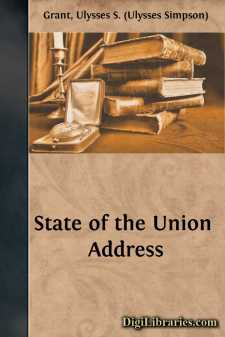History
- Africa 30
- Americas (North Central South West Indies) 50
- Ancient 68
- Asia 58
- Australia & New Zealand 8
- Canada 41
- Caribbean & West Indies 1
- Civilization 20
- Eastern Europe 12
- Europe 310
- Expeditions & Discoveries 60
- General 77
- Historical Geography 1
- Jewish 9
- Latin America 3
- Medieval 8
- Middle East 13
- Military 248
- Revolutionary 8
- Study & Teaching 5
- United States 353
- Western Europe 56
- World 13
History Books
Sort by:
by:
Osmond Tiffany
Mr. President: The events of the American Revolution are so nearly connected with our own times, that the actors in that great struggle seem yet to be to us as living men. We open the portal of the past century, and are with those who once like ourselves, breathed and thought, and who now, lie not silent or forgotten in the tomb. Their deeds live in our memory; their examples are glorious as of old:...
more...
Page 15 CHAPTER I THE BEGINNINGS OF NAVIES Civilization and sea power arose from the Mediterranean, and the progress of recent archeological research has shown that civilizations and empires had been reared in the Mediterranean on sea power long before the dawn of history. Since the records of Egypt are far better preserved than those of any other nation of antiquity, and the discovery of the Rosetta...
more...
INTRODUCTION. The memory of no English sovereign has been so execrated as that of Mary Tudor. For generations after her death her name, with its horrid epithet clinging round it like the shirt of Nessus, was a bugbear in thousands of Protestant homes. It is true that nearly 300 persons were burnt at the stake in her short reign. But she herself was more inclined to mercy than almost any of her...
more...
RECOLLECTIONS OF THE PARISIAN INSURRECTION. The desire of appreciating de visu the results of a five month's siege in a town of two million inhabitants, unexampled in the annals of humanity, made me leave London on the twentieth of March. Hardly landed in the Capital of France which I thought of finding tranquil and occupied in exercising its genius in repairing the disasters caused by the enemy,...
more...
PREFACE. In deference to the judgment of two or three literary friends, I have entitled this, my first attempt at authorship, "The Narrative of a Blockade-runner." They do not agree with Shakspeare that "a rose by any other name would smell as sweet," to the reading public; nor that it is always advisable to call a thing by its proper name. It will be seen, however, by any reader who...
more...
James Madison James Madison was born in King George County, Va., on the 16th of March, 1751. He was the son of James Madison, the family being of English descent, and among the early settlers of Virginia. Was fitted for college by private tutors, and entered Princeton College in 1769, graduating in 1771; remained a year at college pursuing his studies. After this he returned to Virginia and began the...
more...
HISTORY OF MINNESOTA. It has been a little over fifty years since the organization of the Territory of Minnesota, which at its birth was a very small and unimportant creation, but which in its half century of growth has expanded into one of the most brilliant and promising stars upon the union of our flag; so that its history must cover every subject, moral, physical and social, that enters into the...
more...
by:
William McKinley
To the Senate and House of Representatives: It gives me pleasure to extend greeting to the Fifty-fifth Congress, assembled in regular session at the seat of Government, with many of whose Senators and Representatives I have been associated in the legislative service. Their meeting occurs under felicitous conditions, justifying sincere congratulation and calling for our grateful acknowledgment to a...
more...
John Adams John Adams was born on October 19 (old style), 1735, near Boston, Mass., in the portion of the town of Braintree which has since been incorporated as Quincy. He was fourth in descent from Henry Adams, who fled from persecution in Devonshire, England, and settled in Massachusetts about 1630. Another of his ancestors was John Adams, a founder of the Plymouth Colony in 1620. Entered Harvard...
more...
To the Senate and House of Representatives: In coming before you for the first time as Chief Magistrate of this great nation, it is with gratitude to the Giver of All Good for the many benefits we enjoy. We are blessed with peace at home, and are without entangling alliances abroad to forebode trouble; with a territory unsurpassed in fertility, of an area equal to the abundant support of 500,000,000...
more...











